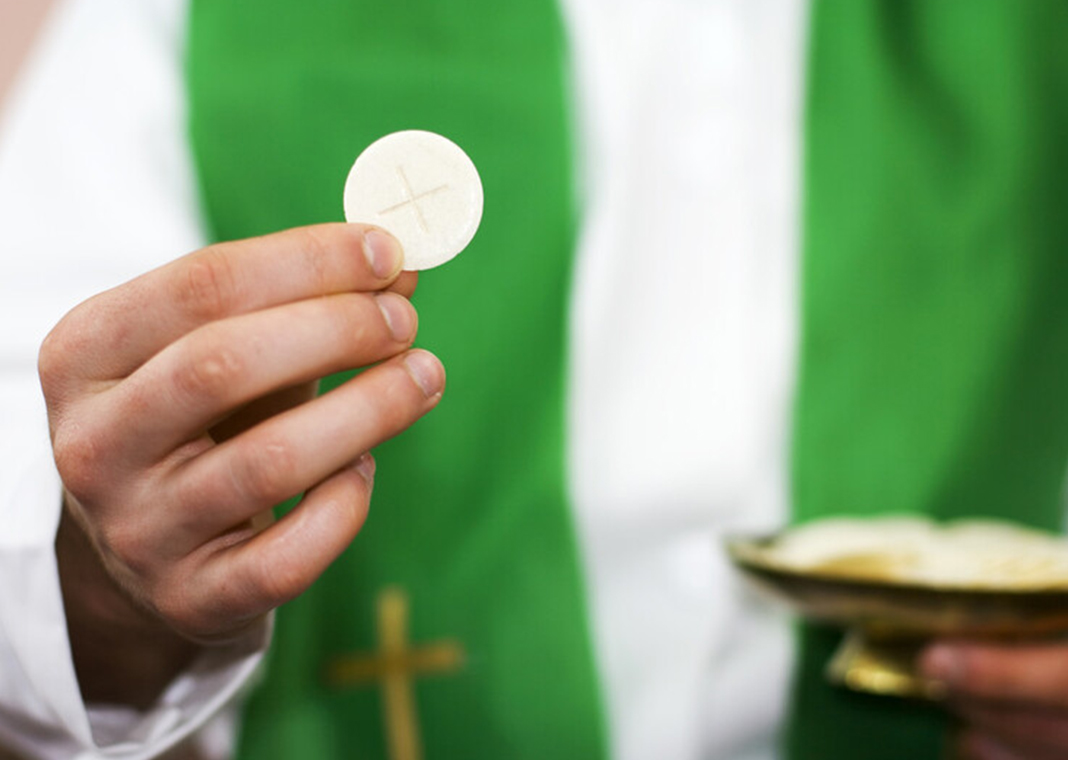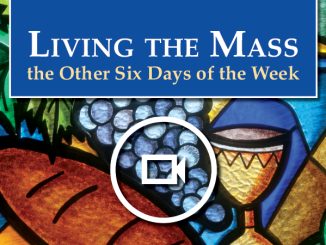
Once, when I gave a Scripture presentation to a group of adults, an elderly gentleman came up to me afterwards and said, “I don’t understand why God seems to be all over the place in the Old Testament, but he’s nowhere to be found in the New Testament.” My guess is that he was referring to the dramatic theophanies of the Old Testament, such as the burning bush. I replied, “Oh, no, God is very present in the New Testament, but in a new way—through Jesus. Jesus is the ultimate divine intervention. And Jesus is truly present to us today in the Eucharist.” The man smiled, scratched his head, and replied, “I don’t know. That’s kind of hard to swallow!”
I’m sure he meant that he was trying to comprehend how God’s presence is manifested differently in the New Testament than in the Old Testament, but his choice of wording was cleverly ironic: the presence of God in the Eucharist as being “hard to swallow.”
Perhaps he is right, in a way. The presence of God is not always easy on us. Sometimes we need to take medicine that’s good for us but is not easy to swallow. (The other day, I tried drinking a V8 on the advice of a doctor and could barely swallow it!)
On the one hand, the Eucharist is the Gift of Finest Wheat that satisfies the hungry heart. On the other hand, the Eucharist, the Divine Presence in our midst, calls us to change—and that’s not always easy. Sometimes, the Word of God is hard to swallow.
May we recognize that each time we receive the Eucharist, we swallow the Word of God. Whatever we swallow becomes absorbed into our bloodstream—our very being. May we absorb the Word of God into the fiber of our being, especially when it is difficult to swallow.





Be the first to comment